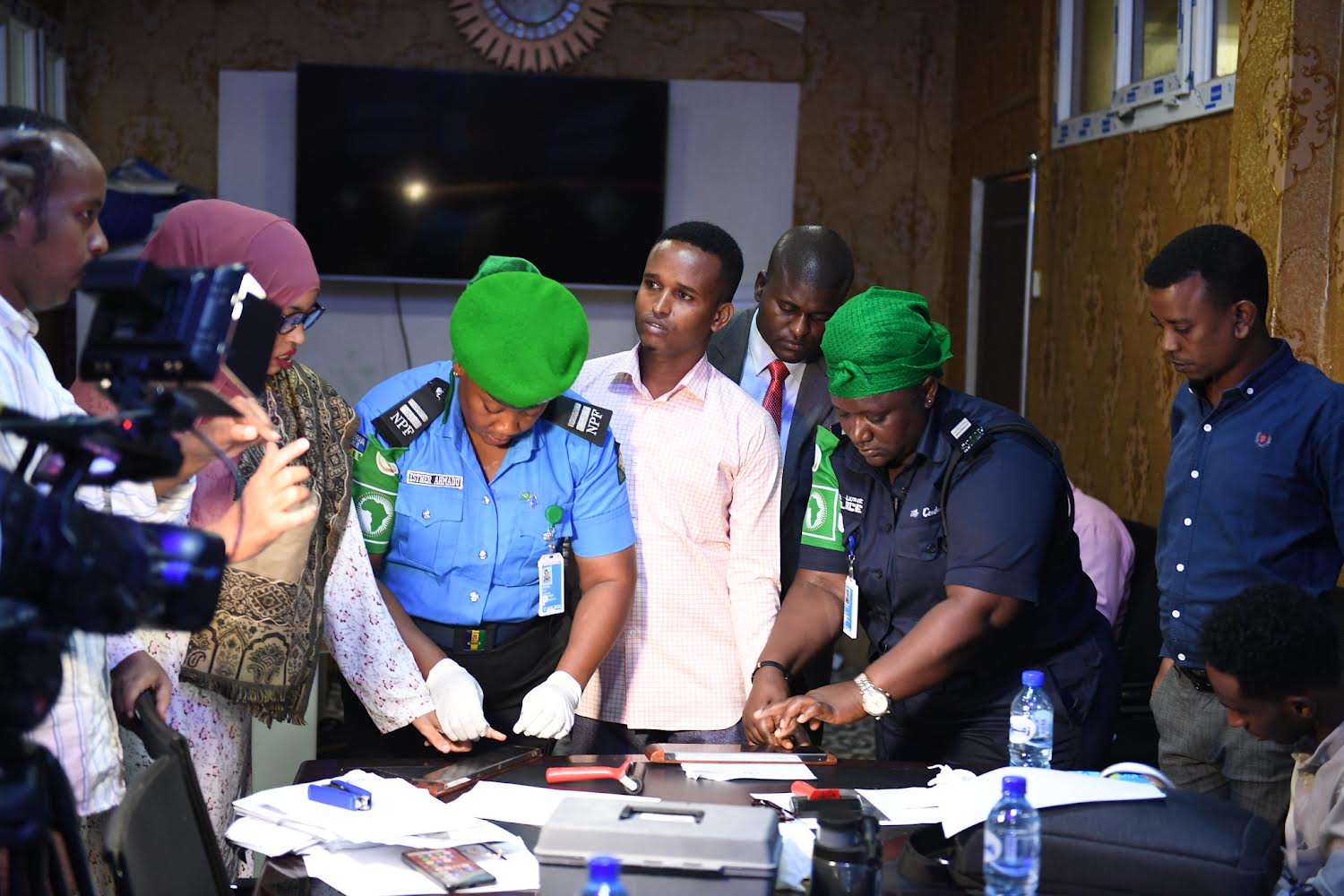Mogadishu, (SONNA) – A team of detectives from the Criminal Investigation Directorate (CID) of the Somali Police Force have completed a three-day intensive training on crime-related evidence gathering.
Organized by the African Union Transition Mission in Somalia (ATMIS) the 11 detectives who contribute to gathering and analyzing physical evidence critical in identifying and arresting criminal suspects were taken through forensic fingerprint evidence as part of gathering evidence and identifying suspects.
Speaking at the closing ceremony on Tuesday, ATMIS Police Logistics Advisor, Senior Superintendent of Police (SSP), Timothy Kashinakazhi, said the training was to improve the capacity of the officers on handling complex criminal cases that require the use of modern scientific methods to unravel.
“ATMIS and the SPF have agreed on a number of capacity building trainings that will help build on knowledge and expertise. We are all committed to improving policing standards in Somalia,” said SSP Kashinakazhi. “
SSP Kashinakazhi noted that building the capacity of the SPF is important to the successful transfer of full security responsibilities to the Somali Security Forces (SSF).
The Commander of the CID Forensic Department, Maj. Mohamed Mohamud Ahmed, appreciates ATMIS for the support, noting that the training would help equip the detectives with the requisite knowledge and skills to enable them thoroughly and professionally investigate crimes.
“If one does not know how to approach a crime scene, to collect, process and classify fingerprints found at the scene, it would be difficult to prosecute and convict a suspect,” said Maj. Ahmed, affirming that the CID is a core unit of the police force, and the training was important to managing suspects and securing convictions in courts.
ATMIS Police CID Advisor, Inspector of Police (IP) Esther Ahmadu, said the training was in response to a request by the SPF CID department, following a needs assessment conducted by the Federal Government of Somalia.
The ATMIS Police Lead Trainer, Chief Inspector of Police (CIP), Tity Conteh said the training had already been conducted in other Federal Member States, including Baidoa and Kismayo, and now in Mogadishu.
The Somali officers shared their feedback from the training.
“This training on fingerprints is critical to investigation, tracking criminals and resolving cases,” said Sergeant Mohamed Moalim Adan, one of the participants.
Another participant, Inspector of Police, Maryan Omar Mohamed, urged ATMIS to organize more of such trainings to help the country establish a professional Police force.
The participants were introduced to the history and external structure of fingerprints, types and patterns of fingerprints and the use and characteristics of fingerprints. The investigators were also taught how to file and classify fingerprints.





